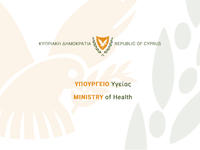Press Releases

13-05-2021 10:34
The vaccination plan now focuses on young people – Answers to basic questions
Cyprus ranks 4th among the European Union countries in terms of COVID-19 vaccinations, with the total number of vaccinations exceeding 400,000. A percentage of 41.3% has already received the 1st dose of the vaccine (305,274 individuals) until May 12, while 12.8% completed their vaccination (94,730 individuals).
During this period, the vaccination plan is focused on young individuals aged 20-29, who have expressed a keen interest in being vaccinated and this demonstrates that they understand that only through vaccination we will be able to get our lives back and return to normality as soon as possible.
In view of the great interest and willingness of young individuals, below are answers to frequently asked questions that concern young people in relation to vaccinations:
1. If I get vaccinated, will I be able to use a solarium?
There are no specific recommendations.
2. If I get If I get vaccinated will I be able to go out for a drink? If not, for how many days?
No studies have been conducted to date, on whether alcohol affects or causes any side effects after vaccination against COVID. There is no evidence that alcohol consumption within the recommended weekly limits will have any effect on the efficacy of the vaccine.
3. If I get vaccinated, will I be able to go for coffee and consume caffeine? Ifnot, forhowmanydays?
There is no contraindication to caffeine consumption after vaccination. Therefore, you can go for coffee whenever you want, even immediately after vaccination if you feel well.
4. If I get vaccinated, will I be able to exercise or do strenuous physical exercise, such as crossfit? If not, for how many days will I not be able to?
Depending on how one feels, one can resume normal activities. Generally, it is recommended that intense physical exercise is avoided in the first days after vaccination.
5. Should I stay home for a few days after my vaccination? If so, for how many days and why?
It is not recommended to stay at home after vaccination except for rest or other reasons, such as having a side effect such as fatigue, headache, etc.
6. Can one return to normal activity after vaccination?
Depending on how you feel, you can continue your normal activities, while observing the current precautionary measures against coronavirus and the health protocols that are applied to each building. If you feel unwell or tired, it is recommended that you rest and avoid using machinery or driving.
7. Do you need to abstain from certain foods after the vaccine?
There are no recommendations for avoiding certain foods after the vaccine.
8. I have a headache, but not because of the vaccine. Can I take a painkiller after the vaccination?
It is not recommended to differentiate the usual way of treating a headache due to vaccination. There are no reports of vaccine interactions with common painkillers, such as paracetamol, and their use is not contraindicated.
9. If I make an appointment for vaccination and something unexpected happens to me (e.g., an accident) and I cannot go to the appointment, what happens? Do I lose my turn or can I reschedule my appointment?
In order to reschedule the appointment, it is necessary to inform the Ministry of Health, immediately. Citizens can either call the 1474 Call Centre, where they will be asked to provide information about the appointment and the reason for requesting cancellation of the appointment, as well as possible rescheduling dates, or send an email to director@mphs.moh.gov.cy, stating the following:
- Name
- Id card number
- Date of Birth
- Date and time of the appointment
- Whether the rescheduling concerns the 1st or the 2nd dose
- Vaccination Centre
- Type of Vaccine
- Telephone number
- Reason for requesting rescheduling (e.g., COVID-19 case, close contact etc.)
- Desired rescheduling
After the above information is received and verified by the Ministry of Health, the rescheduling of the appointment will be processed and the citizen will be informed. The citizen does not need to take any further action through the Vaccination Portal.
Reference: https://www.pio.gov.cy
10. Are SARS-CoV-2 coronavirus vaccines safe or do they have side effects? If so, which ones?
SARS-CoV-2 coronavirus vaccines are safe and, based on the latest safety data, the benefits outweigh the risks. Prior to any approval, vaccines are subjected to rigorous testing and clinical trials to ensure that they meet internationally agreed safety and efficacy reporting standards. Competent regulating Authorities are constantly monitoring the use of COVID-19 vaccines to ensure that they remain safe.
As with all vaccines, COVID-19 vaccines can cause side effects, although not everybody gets them. The side effects reported for COVID-19 vaccines are mostly mild to moderate and short-lived. The most common ones include redness and pain at the injection site, fever, fatigue, headache, muscle aches, chills, nausea, diarrhoea and swelling. In some cases, they may be more severe or last longer. The chances of any of the above side effects occurring after vaccination vary depending on the particular COVID-19 vaccine. More information can be found in the Package Leaflet: User Information, which is available for each vaccine on the website of the European Medicines Agency.
11. Do I need to take precautions against coronavirus after vaccination? If so, why and for how long?
Vaccines are one of the tools to tackle the pandemic. However, as the pandemic continues, we must take all necessary measures to prevent the spread of the virus and prevent more deaths. We must continue to adhere to social distancing measures, stay at home if necessary and follow all preventive measures that have been shown to be effective and keep us safe (use of mask, regular and meticulous hand hygiene, cleanliness of the area where we live or work). At the same time, we need to support and encourage vaccination in order to increase population coverage. The sooner the greater percentage of the population is vaccinated, the sooner there will be immunity in the community and we will be able to gradually return to our normal way of life.
12. Can people who have had allergies in the past be vaccinated?
COVID-19 vaccines should not be administered to people with hypersensitivity to the active substance or to any of the excipients included in the vaccine.
People who have had a severe allergic reaction or respiratory problems after any other vaccine or medicine, or after having been given the COVID-19 vaccine in the past, should contact their Personal Doctor before any decision on the administration of the vaccine.
It is noted that the answers to the above questions are based on the data available so far and the current recommendations of European and global organizations on public health issues and are constantly updated.
Resources: http://www.cdc.gov/coronavirus, www.who.int, www.ema.europa.eu
(MPO/EH)
Relevant Press Releases







